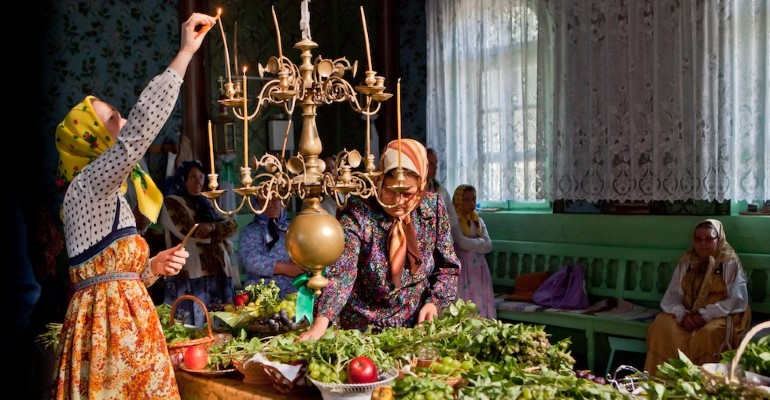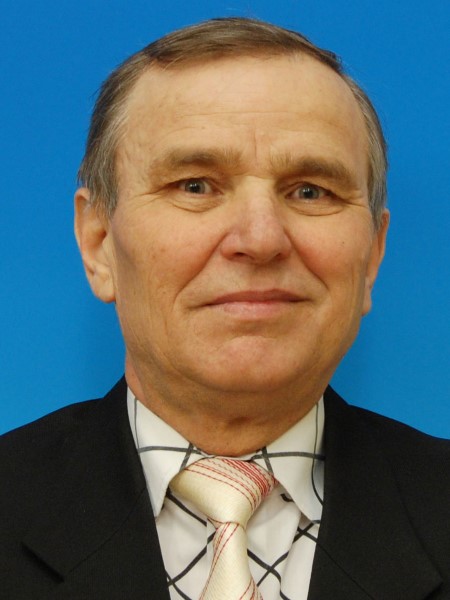 Last week the Community of Lipovan Russians in Romania (CRLR) celebrated the 25th anniversary of its establishment. In fact, these Old Believers fled to the territory of Moldova and Wallachia (today part of Romania) in the late 17th century. Under the reign of Nicolae Ceaușescu they were pressured to assimilate, and many forgot their native language. However, during the past several decades, after acquiring official status as a minority, the Lipovans have been experiencing a national and cultural revival. We spoke about this re-emergence with Miron Ignat, head of the Community of Lipovan Russians and a member of the parliament of Romania.
Last week the Community of Lipovan Russians in Romania (CRLR) celebrated the 25th anniversary of its establishment. In fact, these Old Believers fled to the territory of Moldova and Wallachia (today part of Romania) in the late 17th century. Under the reign of Nicolae Ceaușescu they were pressured to assimilate, and many forgot their native language. However, during the past several decades, after acquiring official status as a minority, the Lipovans have been experiencing a national and cultural revival. We spoke about this re-emergence with Miron Ignat, head of the Community of Lipovan Russians and a member of the parliament of Romania.
— How would you characterize the changes which have occurred over the past quarter center? We know that under Ceaușescu there was an attempt to assimilate the Lipovan Russians. How are relations with authorities now and how is the community doing as a whole?
— First let me say, good day! Right now the sun is shining in Bucharest, and that means it’s a wonderful day. In those days, under Ceaușescu, we weren’t taken into account, officially no one spoke with us. We didn’t even have Russian-language textbooks. Only the Hungarians, Germans and Roma were recognized. After the revolution of 1989 (the overthrow of Ceaușescu – editor) on the old New Year, November 14, 1990, an initiative group was organized and it decided to form our own community. And then on February 12 – that is the day we celebrate the establishment of our community – the existence of our community was officially authorized.
We began to travel around to all the places where Russian Old Believers live, talked with them, created local organizations, elected leaders. We also spoke with the clergy in order to work together and preserve the Russian spirit.
The first steps were taken for children to study their native language. After first this was arranged at churches. We made an effort for the study of the Russian language to be allowed at the Romanian schools which are attended by our children. Through our efforts the law on education was amended to allow, starting from second grade, for 4 hours each week to be devoted to studying their native language. At first it was difficult to find teachers, but we managed to create one class at the pedagogical school, the graduates of which became Russian language teachers.

Gradually the community began to grow stronger and increased its membership. The government provided some support: it provided money for the publication of newspapers and books. Over the past 25 years we have published some 50 books, we have our own printing house, our own publishing house, where textbooks are printed. We are building our own cultural centers.
We are glad that today’s jubilee attracted many guests. There were two ministers, members of parliament from various parties.
— So the basic needs of the community are being met?
— The government of Romania supports us only to a certain degree: the publication of textbooks and so on. However, for example, we do not have enough instructional materials for teachers. We do not have television or radio broadcasting in Russian, which we need. Our children participate in the national Russian language olympiad, but they would also like to attend international children’s camps. Russia provides us this opportunity. When they return from there, they already have a different level of command of the Russian language. Those who have already been to Russia sense the Russian spirit, start to related to Russia differently, speak Russian better, and among the pupils a sort of competition emerges: everyone wants to travel to Russia. Unfortunately, not everyone gets to go – each year Russia invites only about 40 children.
We need publications on the history of Russia, on historical details, materials about great Russian writers, like Pushkin, Lermontov, Lomonosov, Tolstoy. Earlier such materials were available in Romanian, but they have gradually disappeared, and there are no such materials in Russian. We need them.
— Do they know the Russian language well in your community?
— Earlier many did not have a good command of Russian. The basic folk terminology remained: cat, mouse, dog, table, chair, etc. but there were no contemporary expressions, and we used Romanian words. When the community was founded, at the first meetings maybe two or three spoke Russian while the majority spoke a mixture or even just Romanian. Last year we held our conference and it was held entirely in Russian. And today on our jubilee, with the exception of the Romanians who were invited to attend, everyone spoke Russian. And this is the same for everyone: under Ceaușescu they were forbidden from speaking their native language, but now they speak it even in the villages.
— How many Lipovans are left? I came across a figure of 37,000 people, that’s not a lot…
— That’s the thing. We have a strict religious code. When a child is born it has to be baptized within 40 days. And when we say our final farewells to someone, we cross that person off the church books. According to the church records 105,000-107,000 Lipovans live here in Romania.
— Do you have many large families?
— Earlier there were a lot. For example, in my family there are five brothers and one sister. My wife has five sisters and two brothers. But now families have three, four or five children on average. There are no longer any families where there are 10-12 children. Our population continues to grow, but at slower rates.
Boris Serov

 Last week the Community of Lipovan Russians in Romania (CRLR) celebrated the 25th anniversary of its establishment. In fact, these Old Believers fled to the territory of Moldova and Wallachia (today part of Romania) in the late 17th century. Under the reign of Nicolae Ceaușescu they were pressured to assimilate, and many forgot their native language. However, during the past several decades, after acquiring official status as a minority, the Lipovans have been experiencing a national and cultural revival. We spoke about this re-emergence with Miron Ignat, head of the Community of Lipovan Russians and a member of the parliament of Romania.
Last week the Community of Lipovan Russians in Romania (CRLR) celebrated the 25th anniversary of its establishment. In fact, these Old Believers fled to the territory of Moldova and Wallachia (today part of Romania) in the late 17th century. Under the reign of Nicolae Ceaușescu they were pressured to assimilate, and many forgot their native language. However, during the past several decades, after acquiring official status as a minority, the Lipovans have been experiencing a national and cultural revival. We spoke about this re-emergence with Miron Ignat, head of the Community of Lipovan Russians and a member of the parliament of Romania. Gradually the community began to grow stronger and increased its membership. The government provided some support: it provided money for the publication of newspapers and books. Over the past 25 years we have published some 50 books, we have our own printing house, our own publishing house, where textbooks are printed. We are building our own cultural centers.
Gradually the community began to grow stronger and increased its membership. The government provided some support: it provided money for the publication of newspapers and books. Over the past 25 years we have published some 50 books, we have our own printing house, our own publishing house, where textbooks are printed. We are building our own cultural centers. 





